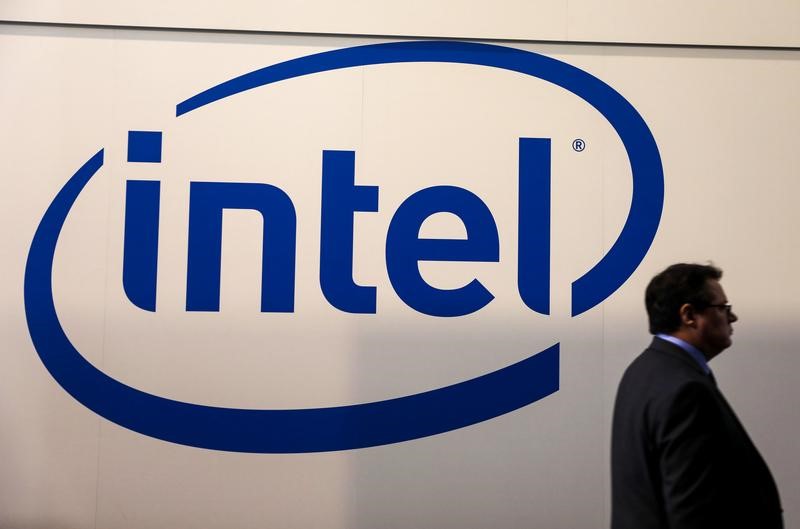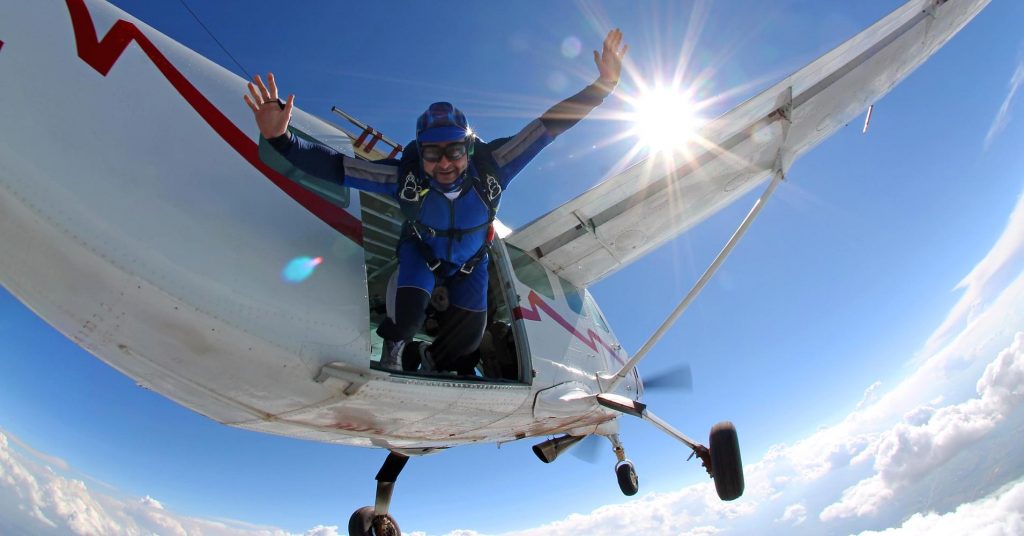
A visitor passes an Intel logo at the Mobile World Congress in Barcelona, Spain, February 26, 2018. REUTERS/Sergio Perez
May 9, 2018
By David Shepardson and Jeffrey Dastin
WASHINGTON/SAN FRANCISCO (Reuters) – The U.S. Transportation Department’s 10 winning drone pilot projects aimed at spurring the use of unmanned aerial vehicles in a wide variety of fields do not include Amazon.com Inc and China’s DJI, but do involve Alphabet Inc, Qualcomm Inc and Microsoft Corp.
Virginia Tech, one of the winners, said that Alphabet’s Project Wing, AT&T Inc, Intel Corp, Airbus SE and Dominion Energy Inc are among the partners for its pilot program that will explore package delivery, emergency management and infrastructure inspection.
The pilot program is aimed at producing data to assist the Federal Aviation Administration in establishing rules and regulations to safely integrate drones at scale. The FAA still must decide questions before the pilot projects begin including whether drone deliveries should follow city streets or cross backyards.
The 10 pilot drone test projects selected from 149 applications are in California, Tennessee, North Dakota, Nevada, Kansas and other states.
Nevada-based Flirtey, a drone delivery startup, said it was a partner on four of the winning applications including Virginia Tech’s. Flirtey said in a statement that it and government partners “will now have access to fast-tracked regulatory approvals as they work to expand lifesaving drone delivery operations.”
U.S. Transportation Secretary Elaine Chao said that drone use is surging. She said the administration must “create a path forward” to ensure the safe integration of drones.
She said there are “no losers” and she thinks dozens of the applicants not chosen could be greenlighted by the FAA in the coming months.
Amazon, which hopes to one day deliver packages with a fleet of drones, said it was unfortunate its applications were not selected but supports the U.S. efforts.
“We’re focused on developing a safe operating model for drones in the airspace and we will continue our work to make this a reality,” said Brian Huseman, Amazon’s vice president of public policy.
Asked why the Transportation Department had not selected Amazon or DJI, Deputy Transportation Secretary Jeff Rosen told Reuters that the projects had gone through a rigorous review process. “There were no losers — only winners,” Rosen said. “This is an important first step in the process of drone integration.”
The company has worked with the FAA on policy as it tested drone technology around the world. It began limited drone deliveries in the United Kingdom in 2016.
China’s SZ DJI Technology Co Ltd said it submitted about a dozen applications.
“We congratulate the winners and will be happy to work with any of them with hardware, software or technical assistance to help these exciting ideas come to life,” said Adam Lisberg, spokesman for the world’s largest maker of non-military drones.
Microsoft Corp is among the partners for a Kansas project, while Qualcomm Inc is joining a winning bid from the City of San Diego to test a wide range of public safety, commercial and emergency response applications.
Memphis Airport Authority Chief Executive Scott Brockman told Reuters that it had also been picked and that its partner FedEx Corp will use drones to inspect aircraft at its hub in Tennessee as well as parts deliveries for aircraft and some package deliveries between the airport and other Memphis locations. Another partner is General Electric Co, he said.
RULES NEEDED FOR PEOPLE, BACKYARDS
Earlier, the department confirmed it had sent two planned rules to the White House to regulate the increased use of unmanned aerial vehicles.
One rule submitted would allow drones to fly over people while another proposal submitted would allow for remote identification and tracking of unmanned aircraft in flight. After both are formally proposed, it would take months or possibly more than a year before they are finalized.
Current rules prohibit nighttime drone flights or operations over people without a waiver from the FAA. The FAA has no requirements or voluntary standards for electrically broadcasting information to identify an unmanned aircraft.
The FAA has said regulations are necessary to protect the public and the National Airspace System from bad actors or errant hobbyists. Several incidents around major airports have involved drones getting close to aircraft.
The wide interest in the U.S. initiative, launched by President Donald Trump last year, underscores the desire of a broad range of companies to have a say in how the fledgling industry is regulated and ultimately win authority to operate drones for purposes ranging from package delivery to crop inspection.
(Reporting by David Shepardson; Additional reporting by Stephen Nellis; Editing by Bill Rigby and Lisa Shumaker)

